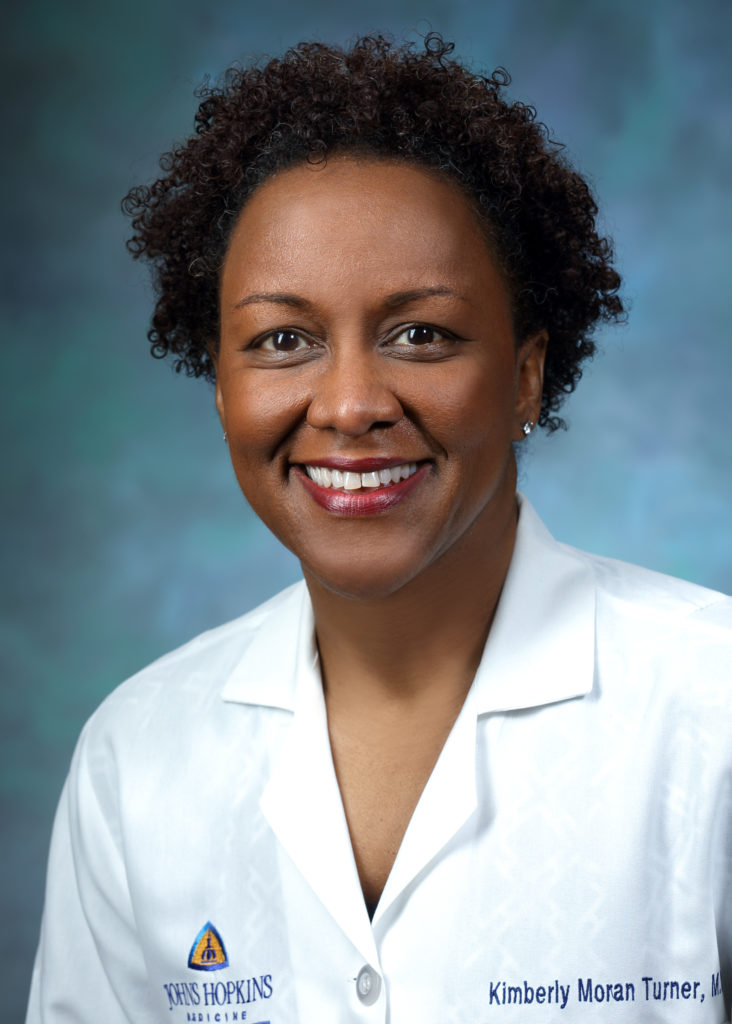Takeaway
Even excellent clinicians can be sued for malpractice. This stressful event can be managed and overcome.

Lifelong learning in clinical excellence | February 27, 2020 | 3 min read
By Kimberly Turner, MD, Johns Hopkins Community Physicians
One in three physicians is sued by the time they are age 55. Certain specialties are at higher risk. For example, OB/GYNs and surgeons are three to four times more likely to be sued than pediatricians or psychiatrists, according to the American Medical Association.
As a 55-year-old OB/GYN who practiced for a decade in Baltimore City, a jurisdiction with many high-risk patients and a low likelihood of defense verdicts at trial, I have been sued. Not only did I survive the litigation and court experience, but also I am thriving today as a busy, productive, well-loved, and respected clinician with Johns Hopkins Community Physicians.
Unintended outcomes, complications, and unfortunately, death, are part of the physician experience, regardless of specialty. When these situations arise, many physicians feel partially responsible because we care. I have never met a physician who desired a poor outcome for a patient or one who purposefully injured a patient under their care. Yet, when these things occur, we have to be willing to honestly discuss the outcome with the patient and their family, care for the patient while they endure the complication, notify our malpractice carrier, and prepare for the potential of ensuing litigation. This typically occurs while we continue to handle full patient schedules in our clinic, hospital, and/or operating room.
Like any major life event, litigation increases our stress levels. It is important to manage this stress in a healthy way. Watch out for feelings of depression or major mood disorders and seek professional help or counseling should they occur.
Here are a few tips that I found helpful during litigation:
1. Understand your malpractice policy.
There are significant differences between claims-made and occurrence policies. Both provide legal support during medical litigation, but many physicians, particularly those in the early attending years, don’t understand what they are purchasing. Before buying, ask seasoned physicians why they purchased certain policies and what the pros and cons of each policy entail.
2. Choose one or two people to support you.
While we are told not to discuss details of litigation with others, it is immensely helpful to be able to discuss your feelings with spouses and/or colleagues. This can, and should, be done in a manner that does not disclose patient information or attorney/client communications. Mental health professionals are also useful, as communications with them cannot be used against you in legal proceedings. For many, litigation is somewhat like grief: allow yourself to feel despair and anger, but remember to reflect and work through those feelings to allow acceptance and hope to follow.
3. Maintain general health.
Make sure you eat well, stay hydrated, exercise, and take time away from the legal process. Consider taking time off from clinical responsibilities during this time.
4. Develop a thick skin.
Litigation brings chart reviews, depositions, and even court appearances. Remember that it is the job of the plaintiff’s attorney to make your care look deficient. Review what you did and why. Focus on your “standard of care” and develop themes and sound bites that explain why your care was appropriate. Don’t allow other people’s opinion of you during litigation to change your opinion of yourself.
A defining moment in my career actually came after losing a malpractice case. I was distraught, felt inadequate as a professional, and thought I would never practice again. I used the emotional support of my husband, the expertise of my attorneys, the tips outlined above, and the knowledge that I had provided the best possible care for the patient despite the unintended outcome to persevere and to survive.
I am happy to say that the aforementioned outcome was more than 15 years ago and that not only did I survive, but I am thriving. I am now a senior member of a group practice that continues to provide excellent and much needed care for my patients and our community.
We’ve all heard the saying “what doesn’t kill you makes you stronger.” Grit and perseverance are qualities to develop and practice. As excellent clinicians, we can use difficult outcomes to develop these qualities while continuing to utilize our expertise to help others.

